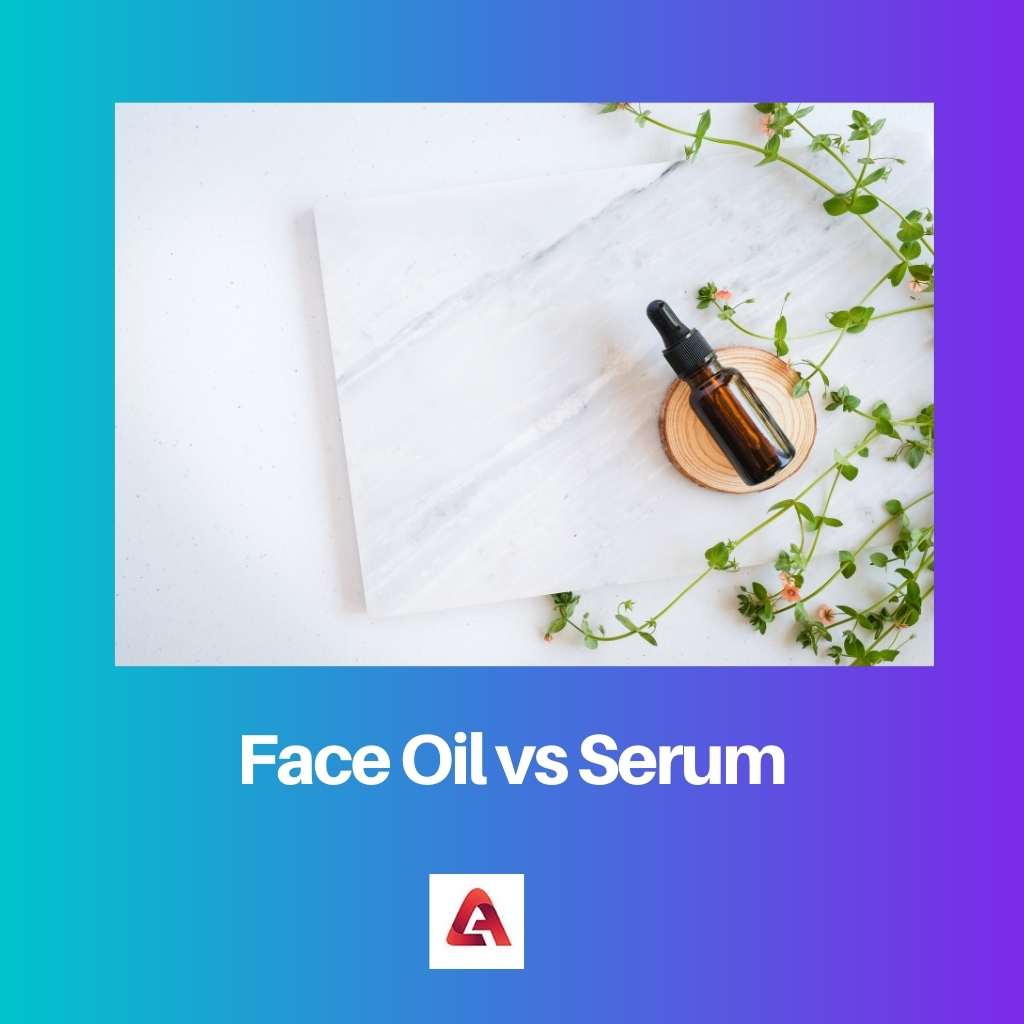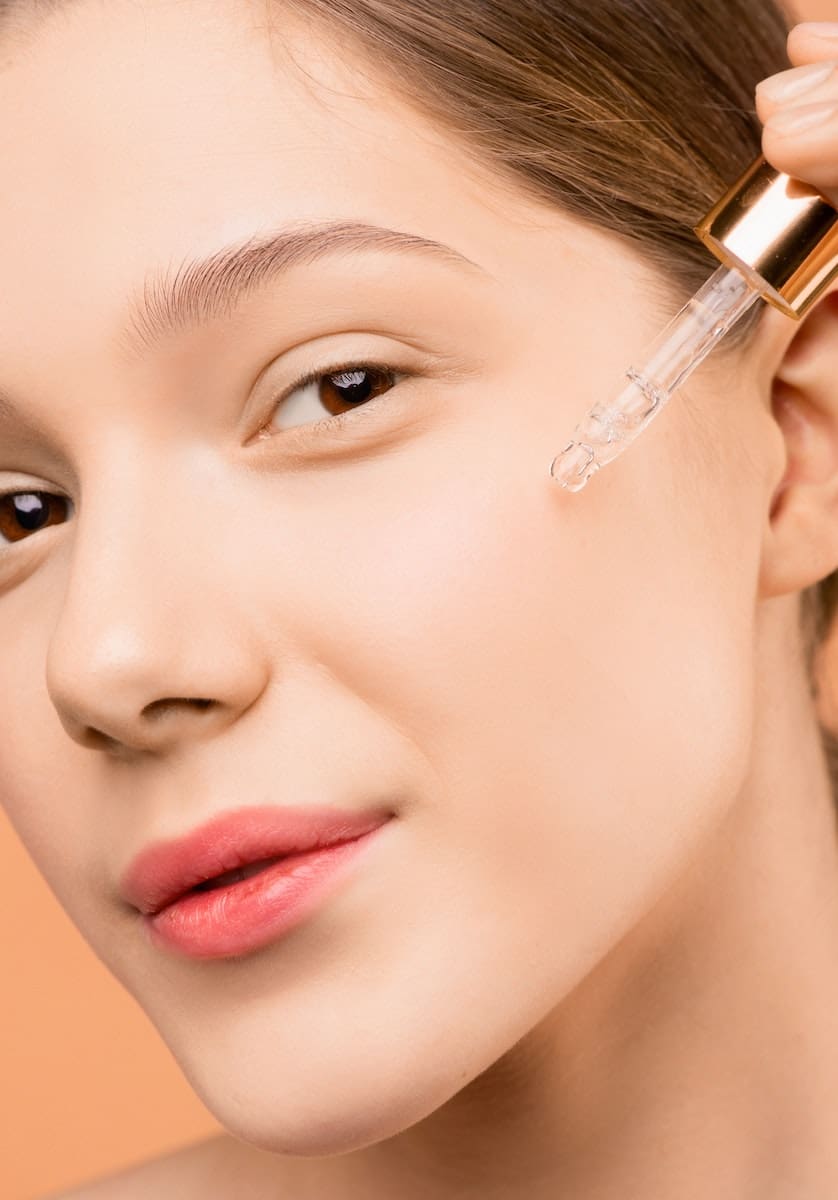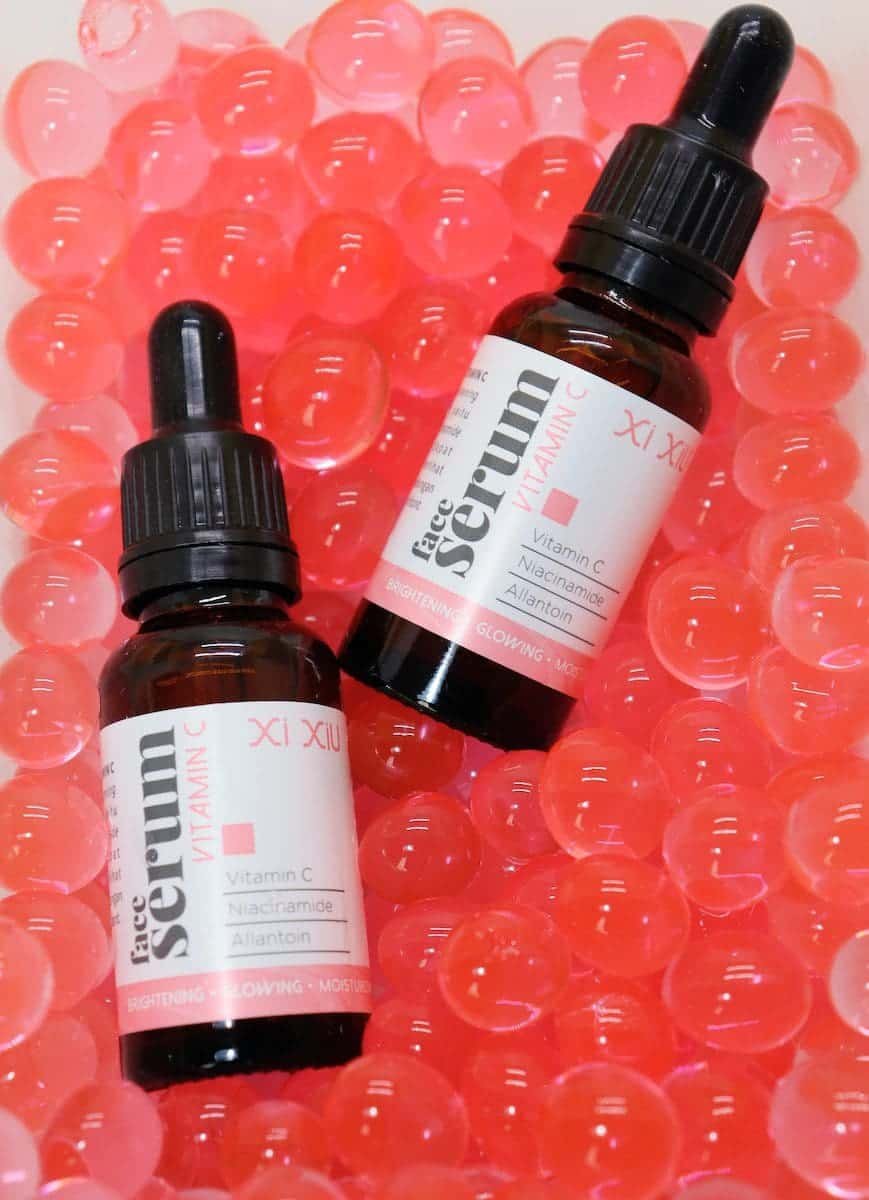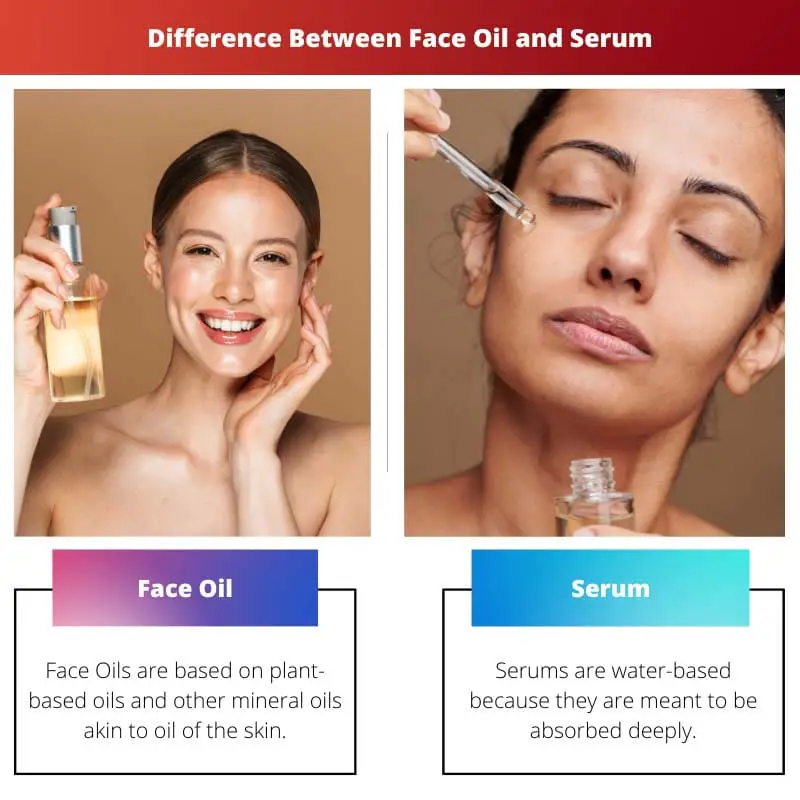A plethora of cosmetic products are available currently and they are mostly in the form of face oils, serums, and creams.
There is a difference in how each of these substances reacts with the human skin to produce desired effects such as softening, producing a glow, lessening wrinkles, etc.
Key Takeaways
- Face oils provide hydration, nourishment, and protection, while serums deliver targeted treatment for various skin concerns.
- Serums have a lighter texture and absorb more quickly than face oils, making them ideal for layering under makeup or other skincare products.
- Face oils can lock in moisture and strengthen the skin’s barrier, whereas serums penetrate deeper into the skin to deliver active ingredients.
Face Oil vs Serum
Face oil is a skincare product that is made from plant-based oils. It is designed to be applied to the face to hydrate and nourish the skin. Serum is a lightweight skincare product that is formulated with a higher concentration of active ingredients than other skincare products. They are applied after cleansing and toning.

Face oils are oil-based cosmetic substances that are designed to interact with the human skin of the face and its natural oils to produce effects such as an increase in contrast, moisture, and skin-tightening.
They lock in the moisture of the skin and supplement the natural oil of the skin while also adding fragrance and a long-lasting glow to the face.
Serums are cosmetic formulas that have very high concentrations of some highly active ingredients such as activated charcoal, which are water-based and more quickly absorbed than oils.
Serums treat issues such as fine lines, wrinkling, acne, and discoloration. Serums are applied in very small quantities due to their high effectiveness and are also very costly.
Comparison Table
| Parameters of Comparison | Face Oil | Serum |
|---|---|---|
| Base | Face Oils are based on plant-based oils and other mineral oils akin to oil of the skin. | Serums are water-based because they are meant to be absorbed deeply. |
| Application | Face Oil is applied by taking a few drops of oil and rubbing it all over the face. | Serums are applied in very small quantities with droppers and swabs. |
| Effects | Face Oil locks in the moisture of the skin and keeps it radiant and glowing. | Serums are meant for solving specific issues such as wrinkling, acne, and fine lines. |
| Affordability | Face Oils are cheaper because they are made from plant-based oils and have simpler formulas and ingredients. | Serums are very expensive because they use complex formulas. |
| Consistency | Face Oils are thicker because they are oil-based and resemble mineral oils. | Serums are very light and thinner than oils as they are water-based. |
What is Face Oil?
Face Oils are formulas that are based on plant and mineral oils that are designed to support the natural oils of the skin in people whose skin is very dry as they help keep the moisture locked in by creating a layer that traps moisture in.
They are primarily skin hydration solutions.
Face Oils are based on essential oils such as lavender, aloe vera, or other fruit-based substances.
They can be used in combination with other skincare solutions such as serums and moisturizer and their additional benefits include anti-aging and glowing skin.
Face Oils also give a good fragrance and radiance to the skin that enhances the beauty, while still protecting the skin from drying.
Face oils function by strengthening the outermost layer of the skin thereby preventing water loss from the skin and keeping it hydrated.
Some face oils also have antioxidants that are really good for the skin. They also contain fatty acids and minerals beneficial for the skin.
During a skincare routine, it is best to apply products from thinner consistency first to thicker products in last for maximum efficiency and effect.
Face oils are, therefore, applied in the last, after serums and other skin solutions and they keep the other products locked in and prevent evaporation.

What is Serum?
Serums are skincare solutions that are designed to be highly effective for specific problems and they contain high amounts of concentrated ingredients in a water-based solution that, when used in small quantities, can be highly effective against aging, drooping, fine lines, acne, and discoloration.
Serums contain intense healing properties and high amounts of antioxidants that heal the skin and provide radiance which is why they are supposed to be used in very small quantities like a few drops at a time.
Serums penetrate very deeply into the skin and prove to be brightening and healing from the inside.
Consumers have to keep aware though that serums have extremely potent ingredients and therefore have to be tested on the skin before applying completely since they might have detrimental effects on people who have very sensitive skin.
Serums douse the skin with active ingredients and are highly nourishing and although they are expensive, small quantities are applied so they last longer.
During a skincare routine, serums are applied first as they are absorbed very quickly and need to be directly in contact with the skin to work as intended.
Other products are layered on top of the serum layer. Serums contain ingredients such as activated charcoal, hyaluronic acid, vitamins, peptides, and glycerine.

Main Differences Between Face Oil and Serum
- Serums are water-based whereas Face Oils are oil-based therefore serums are very thin in consistency as compared to face oils.
- Serums are considerably more expensive than face oils because the ingredients and formulas uses in serums are more difficult to obtain and prepare.
- Serums are used in very small quantities like one or two drops at a time whereas face oils are used in relatively larger quantities.
- Serums offer antioxidants and minerals to the skin whereas face oils contain fatty acids and vitamins.
- Serums offer anti-aging solutions, anti-wrinkle solutions, and anti-acne solutions whereas face oils are primarily focused on the hydration of the skin.


Informative guide for anyone looking to improve their skincare routine with face oils and serums. Simple and easy to understand.
This is the most comprehensive article I’ve read on face oils and serums. Very helpful and well-researched.
A very detailed comparison. It helped me in understanding the nuances of face oils and serums. Great work!
It’s really nice to finally see a detailed comparison between face oils and serums. I appreciate the amount of information provided here.
Very interesting article, goes into great detail about face oils and serums. Thoroughly enjoyed reading!
This article is very informative and helpful when it comes to understanding the differences between face oil and serum. Great job!